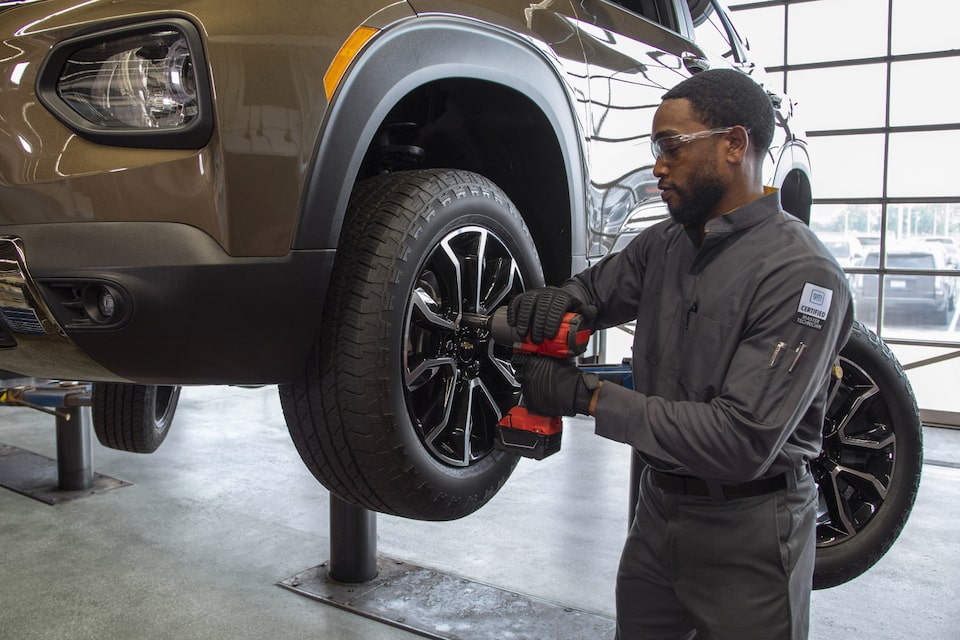Premium Tires Morris IL: Quality Products for All Makes and Versions
Premium Tires Morris IL: Quality Products for All Makes and Versions
Blog Article
Tire Service: The Influence of Weather Conditions
When it comes to making sure optimum efficiency and safety on the roadway, understanding the effect of weather condition problems on tire solution is vital. In this discussion, we will check out the elaborate partnership in between weather conditions and tire service, losing light on the relevance of weather-specific tire upkeep methods and considerations.
Warm and Tire Efficiency
When exposed to high temperatures, tires experience modifications in efficiency that can considerably affect vehicle security and handling. The warmth produced from extended driving or warm climate conditions causes the tire rubber to soften, causing lowered walk life and raised wear. As the rubber becomes softer, the tire's grip when driving diminishes, affecting braking distances and general grip. In extreme cases, excessive warm can even cause tire blowouts, presenting an extreme safety risk to the vehicle and its owners.
Additionally, heats can increase the procedure of tire aging, triggering the rubber to degrade quicker. This can lead to cracks, bulges, and various other kinds of damages that jeopardize the structural integrity of the tire. To mitigate the impacts of warmth on tire performance, motorists ought to on a regular basis check their tire pressure, turn tires to make certain even use, and evaluate for any type of signs of damage. Additionally, making use of tires particularly developed to endure heats can help keep ideal efficiency and safety and security when traveling.
Cold Weather Results
Cold weather condition problems can have a considerable effect on tire efficiency and safety. As temperatures decline, tire rubber can solidify, leading to reduced grip on icy or snow-covered roads. In winter, tires may additionally lose air pressure extra quickly, which can affect handling and gas efficiency. Furthermore, cold temperature levels can cause tire sidewalls to stiffen, raising the risk of damage from fractures or various other road risks.
To reduce the impacts of cool weather on tires, it is vital to routinely inspect tire pressure and inflate them to the maker's recommended levels. Using winter season or all-season tires developed for chilly weather conditions can also improve traction and grip on icy or snowy roadways - tire shop morris. Proper tire maintenance, consisting of normal evaluations for wear and damages, ends up being much more vital throughout cooler months to make sure ideal performance and safety
Rainy Conditions Influence
Tires with damaged footsteps are extra susceptible to hydroplaning, where a layer of water constructs up between the tire and the road surface, leading to loss of traction. To battle this, vehicle drivers should frequently check their tires for appropriate walk depth and take into consideration spending in tires especially made for wet conditions.

Snow and Tire Security
When driving in snowy conditions, having the appropriate tires can make a considerable difference in security and performance. Winter months tires are developed with unique rubber compounds and tread patterns to provide much better traction on snow and ice compared to all-season tires.
In enhancement to utilizing wintertime tires, it is vital to ensure they are effectively inflated. Winter can trigger tire pressure to go down, affecting traction and handling (discount tires morris il). On a regular basis checking and keeping the correct tire pressure is necessary for optimal performance in snowy conditions

Weather-Related Tire Upkeep
When confronted with numerous weather, appropriate tire maintenance becomes an important aspect of vehicle safety and security and efficiency. Weather-related tire maintenance encompasses an array of techniques targeted at guaranteeing optimal Check This Out tire feature and durability in different climate situations. One essential facet of weather-related tire upkeep is tire stress guideline. Varying temperature levels can trigger tire pressure to differ, influencing traction and gas effectiveness. On a regular basis inspecting and adjusting tire pressure according to supplier suggestions is essential for secure driving in transforming weather. Additionally, tire step depth plays a substantial duty in dealing with various weather aspects. Tires with adequate step depth give much better grasp on wet or icy roads, reducing the threat of skidding or hydroplaning. When step wear reaches a certain deepness is crucial for maintaining traction and stability in damaging weather, evaluating tire walk consistently and replacing tires. By prioritizing weather-related tire maintenance, vehicle drivers can improve safety and security, get redirected here improve car read performance, and extend the life-span of their tires.
Verdict
In conclusion, climate problems have a significant influence on tire efficiency and safety (tire shop morris). From warmth impacting tire pressure and use to cold climate minimizing grip, it is essential to take into consideration the weather when maintaining and making use of tires.
In this discussion, we will certainly explore the detailed partnership in between weather problems and tire service, dropping light on the importance of weather-specific tire upkeep techniques and considerations.

Report this page